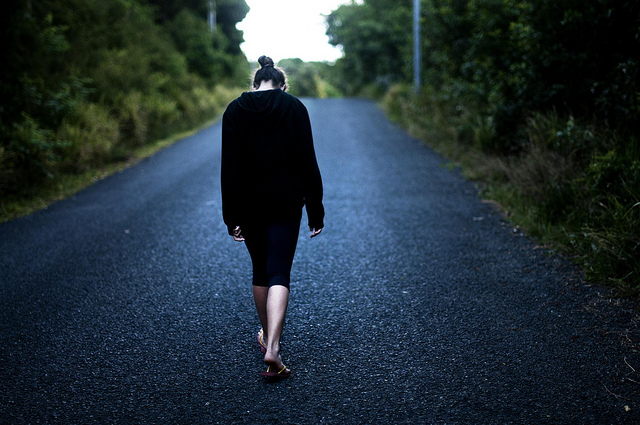Here’s something that not many people know about me, one who writes (overshares) about her food, fitness routine, beauty, personal life, for a living. I suffer from loneliness–not just a little bout of blues, but a deep sense of isolation and anxiety about not being understood or appreciated. I don’t feel this way every day or even most days, but bouts of loneliness has made its appearance fairly regularly in my life.
Not only does loneliness feel painful, it also hits me with self-reproach, as well. What right do I have to feel lonely at all? Not much, it seems. For one, I have been in a loving relationship for the past five years. Our relationship is not perfect, but it has been a haven almost since the moment I came into my own. Aside from my boyfriend, I have several very close friends with whom I can talk just about anything–relationships that I feel very proud of. While my parents live far away, my sister and brother-in-law live in the city and I can see them as often as I like.
Then there is the fact that I rather enjoy being alone. I treasure my solo time, whether it’s working at a cafe, going on a run, or practicing yoga. I don’t always enjoy large crowds, although when the mood strikes I can be positively gregarious and even love the attention. (I wish I could show you my impromptu toast at my sister’s wedding…it was just so good!!) So apparently, I can be comfortable working the crowd or sitting in a room by myself. Then what causes the feeling of loneliness?
The answer–or at least a part of it–might lie in genetics, like so many other things. According to the University of Chicago researcher (and the author of Loneliness) John Cacioppo, loneliness is half environmental, and half inherited. In one of his studies, he found that about half of variance between individuals’ feeling of loneliness is due to genetic factors. I’ve always suspected that I take after my mom in this regard, she who alternates between savoring her solitude and feeling intensely alone. She is also like me in that she prefers deep attachments to more casual friendships, though she can also be quite humorous and lighthearted as well.
Like so many other inherited traits, loneliness also comes with its share of psychological and physical dangers. It can affect just about anyone, even someone as beloved as Robin Williams, with heartbreaking consequences. Now there is someone who might rightly beg the question, how he could possibly feel “lonely,” until we accept that emotions are legitimate whether or not one seems “justified” in feeling that way. Loneliness, Cacioppo argues, is a biological need that is hardwired into ourselves much like hunger or fatigue. Some of us have faster metabolisms or larger appetites; some people have boundless energy or a greater need for relaxation. No wonder then, that loneliness has added mortality risk comparable to smoking and also increases inflammation and weakens the immune system. It’s a very real problem, and yet one that is stigmatized in our culture that so values social currency.
If you, like me, are dealing with loneliness, here are some ways to make it easier:
1. Don’t blame yourself for feeling lonely.
The biological-hereditary model of loneliness was an eye-opener for me. Would you blame yourself for being hungry hours after your last meal, or tired after a hard day at work? No. Likewise, don’t shame yourself for feeling a longing for human connection. It just means you are ready for more social intimacy.
2. Enjoy both larger, less involved connections and close, deep relationships.
It’s difficult to sustain feelings of social fulfillment with just one person in your life. Even if your marriage or relationship is strong, cultivate friendships widely–and even enjoy positive interactions with acquaintances or strangers. On the other hand, if you feel lonely despite having a large circle of friends, you may want to nurture a deeper friendship or relationship with someone.
3. Reach out to people first.
Ironically, while feeling lonely, I am less willing to reach out to friends and socialize. But that is similar to being hungry and refusing to eat–so go ahead and make a move! Call or email a friend, go to a party, or even join your family for dinner. Chances are, people who are on the receiving end of your outreach will appreciate it so much, too.
4. Be authentic.
I’ve found that one of the most difficult aspects of loneliness is trying to hide it. No one wants to seem vulnerable, especially in our culture where “loner” seems to be possibly the most undesirable thing you can call someone. (Worse even than a “jerk”–which sometimes can be seen as attractive). But loneliness and likability or popularity are not mutually exclusive. So if you’re lonely, allow yourself to feel a bit melancholy without self-reproach. Don’t worry so much about putting up a brave, self-sufficient front and be genuine and gentle in your approach to connecting with people.
Have you dealt with loneliness? (Anyone else “genetically predisposed” to it?) How do you deal with it?
Related: Alone and Lonely – Is There a Difference?
__
Photo: Maëlle Caborderie via Flickr





